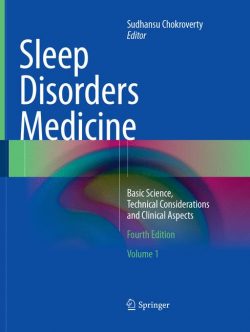Edusemiotics is a pioneering area of study that connects semiotics – the science of signs – with educational theory and the philosophy of education. This volume reflects cutting-edge research by scholars in education and in semiotics worldwide, bridging the two discourses to present the state of the art in this new transdisciplinary field.
The book’s emphasis is on educational theory as based on semiotic philosophy: as such, it challenges the current conception of semiotics in education as merely a sub-branch of applied semiotics. It presents edusemiotics as a novel unified conceptual framework at the interface of theoretical semiotics and educational philosophy, based on both theoretical and empirical studies from around the world.
The chapters in this handbook also bring to the fore the intellectual legacy of Charles S. Peirce, John Dewey, Gilles Deleuze, Umberto Eco, Julia Kristeva, Mikhail Bakhtin, Paul Ricoeur, Martin Heidegger and other thinkers, pointing out the implications of edusemiotics for meaningful pedagogy and experiential learning in diverse contexts.
1 Introduction: A primer on edusemiotics.- 2 Academic culture and the science of signs.- 3 ‘Diagrammatic Teaching’: The role of iconic signs in meaningful pedagogy.- 4 Semiotics in Mathematics Education: Topological foundations and diagrammatic methods.- 5 Metaphors, Models, and Diagrams in Educational Theories and Practices.- 6 Education and Reasoning: Advancing a Peircean edusemiotic.- 7 No surprise in the ‘Surprise Effect’ of Values Pedagogy: An edusemiotic analysis.- 8 Semiotics and meaning in the aims of education in Greece.- 9 Edusemiotics, Existential Semiotics and Existential Pedagogy.- 10 The Embodied mind: Education as the transformation of habits.- 11 Academic Pathologies and Anxieties of Knowing.- 12 Interpreting ourselves.- 13 The Role of the Reader: Remembering the possible worlds of Umberto Eco.- 14 Reading History: Education, semiotics and edusemiotics.- 15 Heteroglossia as a dialogic route to metaphoricity in education.- 16 Knowledge as a sign: An edusemiotic theory of learning heritage language.
Inna Semetsky has a PhD in the philosophy of education from Columbia University in New York in addition to her earlier MA in counseling and Grad.Dip.Ed. in mathematics and science education. She was a Postdoctoral Research Fellow at Monash University, Australia and has received the First Roberta Kevelson Memorial Award from the Semiotic Society of America (SSA) for her innovative research. She serves on the editorial boards of several academic journals including Educational Philosophy and Theory. She has produced over 150 academic publications including nine books. Among her titles are Deleuze, Education and Becoming (2006); Re-Symbolization of the Self (2011); Jung and Educational Theory (2013); and The Edusemiotics of Images (2013). Her latest book Edusemiotics: semiotic philosophy as educational foundation (coauthored with Andrew Stables) received a 2015 Book Award from the Philosophy of Education Society of Australasia (PESA). She has guest-edited several special issues of such journals as Educational Philosophy and Theory, Studies in Philosophy and Education, Policy Futures in Education, and Semiotica – a journal of the International Association for Semiotic Studies (IASS). She now serves as a chief consultant to the recently established Institute for Edusemiotic Studies (IES) registered in Melbourne, Australia.
Edusemiotics is a pioneering area of study that connects semiotics – the science of signs – with educational theory and the philosophy of education. This volume reflects cutting-edge research by scholars in education and in semiotics worldwide, bridging the two discourses to present the state of the art in this new transdisciplinary field.
The book’s emphasis is on educational theory as based on semiotic philosophy: as such, it challenges the current conception of semiotics in education as merely a sub-branch of applied semiotics. It presents edusemiotics as a novel unified conceptual framework at the interface of theoretical semiotics and educational philosophy, based on both theoretical and empirical studies from around the world.
The chapters in this handbook also bring to the fore the intellectual legacy of Charles S. Peirce, John Dewey, Gilles Deleuze, Umberto Eco, Julia Kristeva, Mikhail Bakhtin, Paul Ricoeur, Martin Heidegger and other thinkers, pointing out the implications of edusemiotics for meaningful pedagogy and experiential learning in diverse contexts.
Presents edusemiotics as a novel unified conceptual framework at the intersection of educational philosophy and theoretical semiotics
Collects cutting-edge theoretical and empirical research in this emergent field
Addresses the dimension of values and meaning in education and learning
Explores the practical implications of edusemiotics in diverse global contexts




